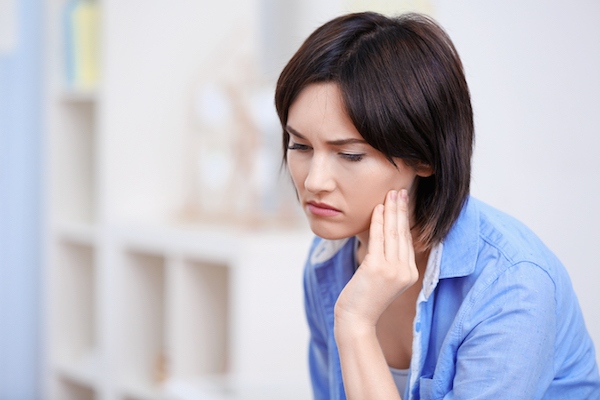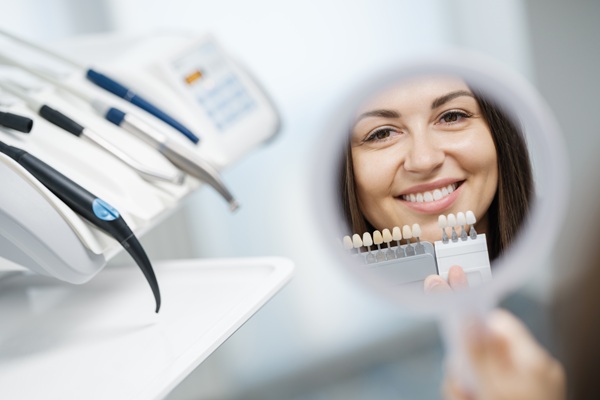 Disorders of the temporomandibular joint, or TMJ, can cause significant impairment and pain that affect life quality. Some sufferers can attribute the discomfort to symptoms of chronic illness or genetics. For others, curtailing specific habits that increase the risk of developing this condition is advisable.
Disorders of the temporomandibular joint, or TMJ, can cause significant impairment and pain that affect life quality. Some sufferers can attribute the discomfort to symptoms of chronic illness or genetics. For others, curtailing specific habits that increase the risk of developing this condition is advisable.
The role of the TMJ
This joint connects the jaw to the temporal bones of the skull and facilitates various movements necessary for these actions:
- Chewing
- Swallowing
- Yawning
- Speaking
It exists on both sides of the human skull in front of each ear. Closely surrounding it are muscles, ligaments, cartilage, nerves, and blood vessels.
Behaviors that may boost the risk of TMJ disorder
Patients who suffer from jaw pain and discomfort unrelated to other health conditions may want to consider curtailing certain habits for symptom relief. Dentists can deduce which practices may increase a patient's risk of developing the disorder by examining teeth for chips and wear caused by grinding or clenching. Habits that contribute to TMJ-related jaw problems include the following:
1. Clenching the jaw
Many people develop an unconscious jaw-clenching habit that occurs in response to chronic stress or anxiety. This tendency can place an overwhelming pressure of over 200 pounds on the teeth that transfers to the jaw joint, leading to pain and inflammation. Proactive methods of stress management, including meditation or prescription drugs, can help patients stop this practice. Dental nightguards may also reduce the impact of sleep-related clenching habits.
2. Aggressive chewing
Similar to jaw clenching, aggressive chewing can contribute to pain in the jaw and surrounding areas. Habitual chewing outside of meals may cause overuse of the jaw joints and muscles, stressing them to the point of spasms that migrate to the neck and head. Stress-related habits, including daily and prolonged chewing of gum, tobacco, pencils, and other objects, are usually the cause. Diets rich in hard and tough foods such as raw vegetables or jerky meats also contribute to the jaw cartilage's degeneration from osteoarthritis.
3. Poor posture
Poor posture or slouching can cause a host of structural problems in the body. It can place unnecessary strain on neck muscles, causing headaches. Slouching also throws delicate jaw joints out of balance by hyperextending the neck and lower jaw forward. The result is bite misalignment, which is a hallmark of TMJ disorder. Physical therapy, sitting upright, stretching, and keeping the shoulders back all improve posture to reduce the risk of developing the disorder.
4. Misuse of teeth
Using teeth for functions other than chewing food increases the possibility of TMJ disorders. When teeth replace tools specifically designed for activities such as opening bottles, tearing tape, and cracking nutshells, the jaw joints are subjected to unnatural movements and pressure. Aside from having a negative impact on the teeth, these habits cause misalignment of the upper and lower jaw and tax its surrounding muscles and ligaments, causing chronic pain and inflammation. Resisting these habits can significantly reduce an individual's risk of developing jaw problems.
Conclusion
A dentist can frequently determine the cause of jaw-related pain based upon an oral examination. Many patients can reduce their risk of developing TMJ disorders through habit reversal.
Request an appointment or call Complete Dental at 559-448-9000 for an appointment in our Fresno office.
Related Posts
Jaw pain is usually symptomized by throbbing pain. It can start abruptly, or mildly at first and worsen over time. Regardless, the symptoms depend on the origin of the pain. Knowing the causative agent is the first course of action in treating this condition. One of the most common causes of jaw pain is misaligned…
Disorder of the temporomandibular joint, or TMJ, is a condition that can cause difficulty with jaw functions. The disorder can cause jaw pain that restricts how you open and close your mouth. You might notice clicking sounds or jaw locking when eating, talking or yawning. Continue reading to learn more about the symptoms, diagnosis and…
In the dental community, TMJ disorders are a relatively common issue. Many adults experience the telltale signs of jaw problems at some point in time. These can include:InflammationPain or sorenessTension and stiffnessClicking/popping when opening or closing the mouthTrouble opening the mouth fullyFor some people, TMJ disorder is a serious, chronic problem that requires medical intervention.…


